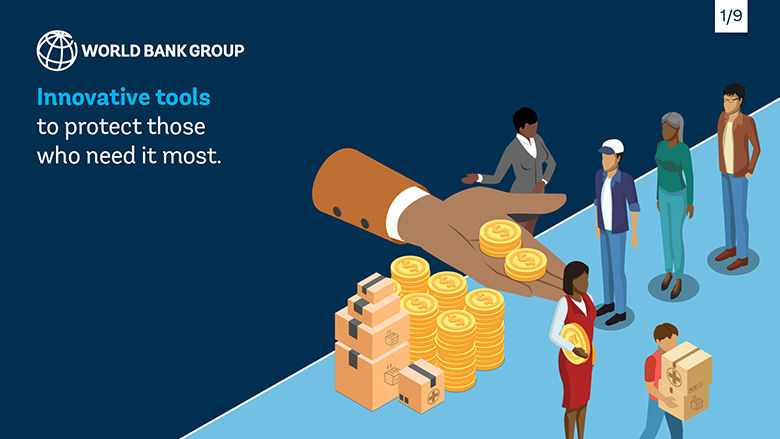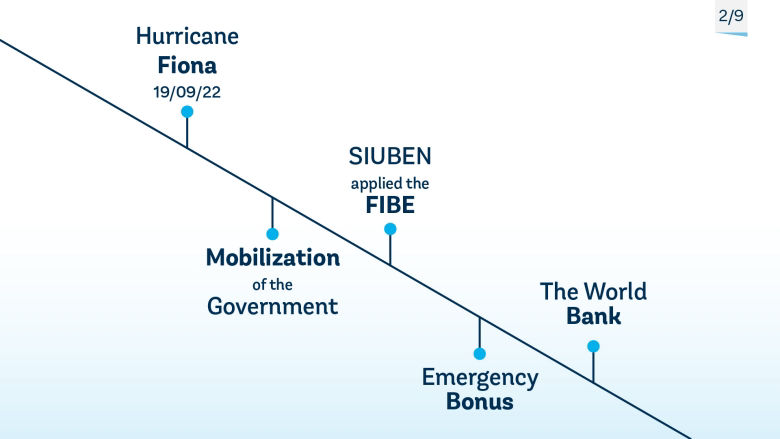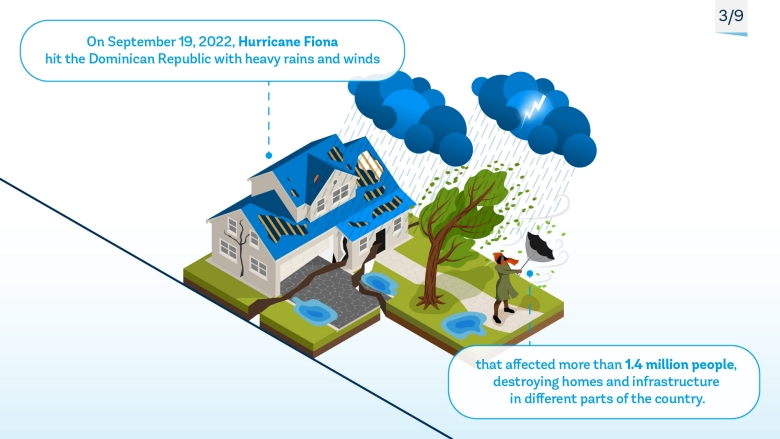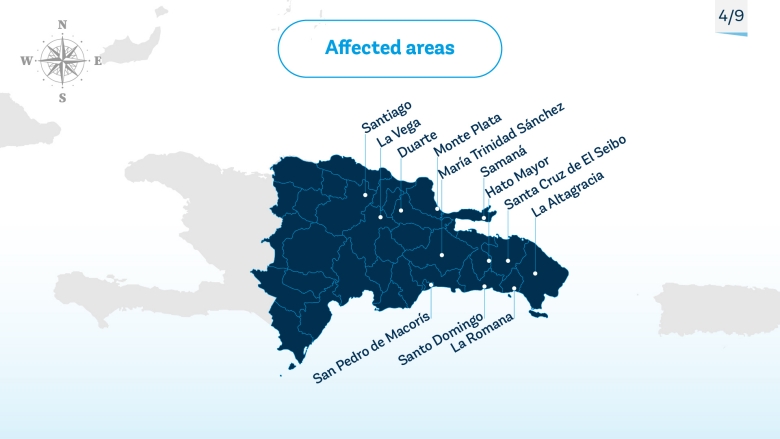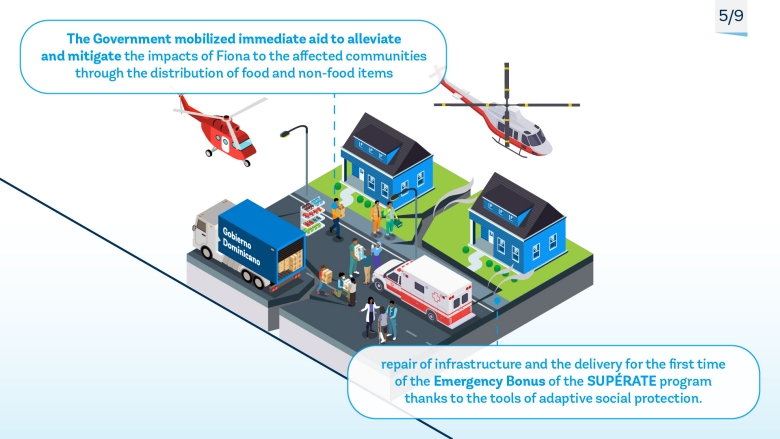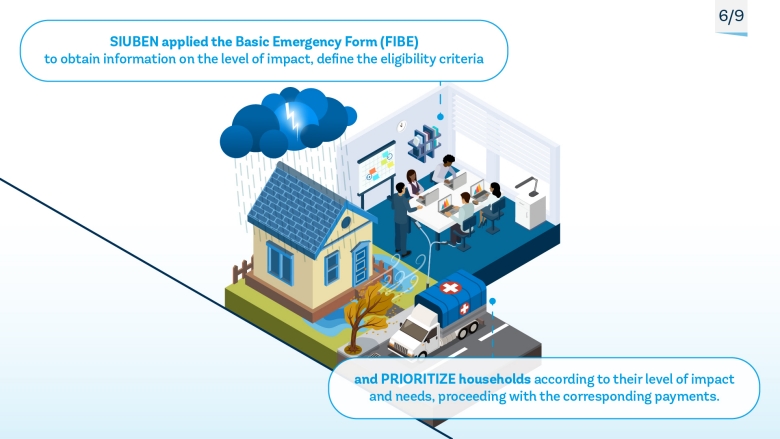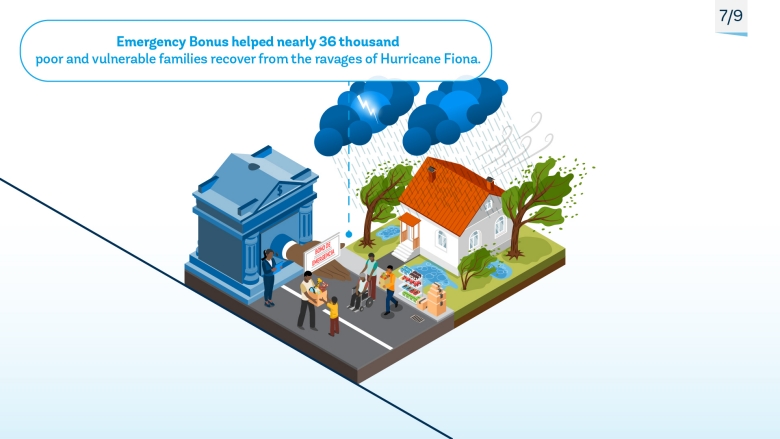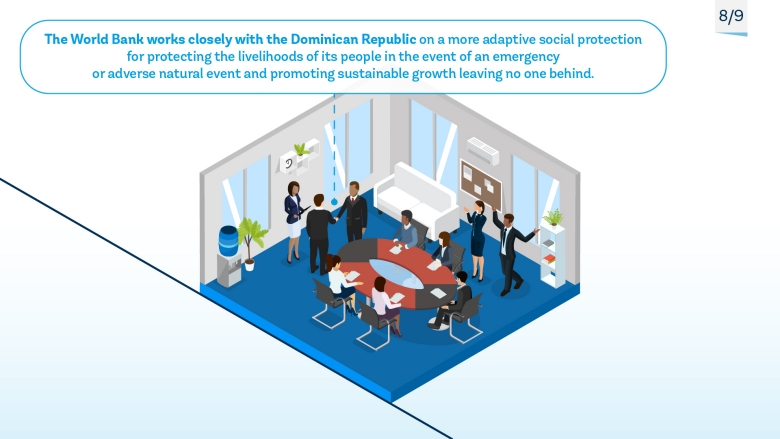"When Hurricane Fiona came, the river flooded our house," says Alexandra Hernández from Higüey, in the province of La Altagracia in the Dominican Republic. "We were in shock."
To mitigate the damage, Alexandra received the Emergency Bonus (Bono de Emergencia), an emergency cash transfer from the Dominican government for those most affected by the hurricane. "With that money, I bought food and paid the rent," she explains and says she felt happy because "we were considered."
The Emergency Bonus is currently one of the most important initiatives of the main social protection program in the Dominican Republic, SUPÉRATE, and it is used to support vulnerable families during crises. Although the bonus was a great help, Hurricane Fiona highlights the high vulnerability of poor women to extreme weather events.
An Unequal Struggle
The recent gender assessment conducted by the World Bank reveals that, despite the exceptional growth of the Dominican economy in the last decade, women still face significant inequalities in education, health, and employment. These disparities leave them vulnerable to adverse climate shocks such as floods, storms, and droughts.
Dominican women, often lacking formal employment and responsible for managing households, have limited capacity to respond to and recover from climate-related disasters, which are becoming more frequent and intense. They bear greater economic strain and caregiving burdens due to insufficient support from fathers for adequate child maintenance. Additionally, family breakdowns, increased domestic violence, migration, and restricted access to services following catastrophes (such as basic health services, gender-based violence care, or childcare services) compound their challenges.
As a result, women face heightened poverty and reduced access to opportunities, leaving them more susceptible to losing everything during a crisis and struggling to cope with the aftermath.
Gender-Focused Social Protection
In the Dominican Republic, the SUPERATE program- of which the Emergency Bonus initiative is a part- remains a fundamental pillar in providing support to the most vulnerable women.
SUPÉRATE serves as the country's primary instrument for increasing the resilience of the poor and vulnerable after climate shocks. Through emergency cash transfers it helps individuals recover and avoid negative coping strategies, such as reducing household food intake or withdrawing children from school.
Of the 35,000 beneficiaries of the Emergency Bonus in response to Hurricane Fiona, more than 60% were female-headed households. These households received the bonus according to the severity of their impact.
"Given the existing inequalities in society, women and girls are disproportionately affected during disasters," explains Úrsula Martínez, a Social Protection Specialist at the World Bank. "it is necessary to understand the challenges women and girls face in terms of their socioeconomic conditions, socio-cultural beliefs, and traditional practices to design response programs that can increase their resilience to climate change and disasters."
However, much remains. The World Bank, through the Integrated Social Protection, Inclusion, and Resilience Project (INSPIRE), aims to expand social protection and strengthen the resilience of the poorest population in the Dominican Republic, with a special focus on female-headed households.
Currently, approximately 1.4 million households enrolled in SUPERATE benefit from INSPIRE. This includes participants from the Aliméntate program and the Emergency Bonus, all working toward improved resilience and food security in the face of crises. Additionally, SUPERATE actively promotes the inclusion of women and youth through training programs that help them develop skills for work and entrepreneurship, fostering connections that enhance their integration into the labor market.
Learn more about the Dominican Republic's adaptative social protection system.

